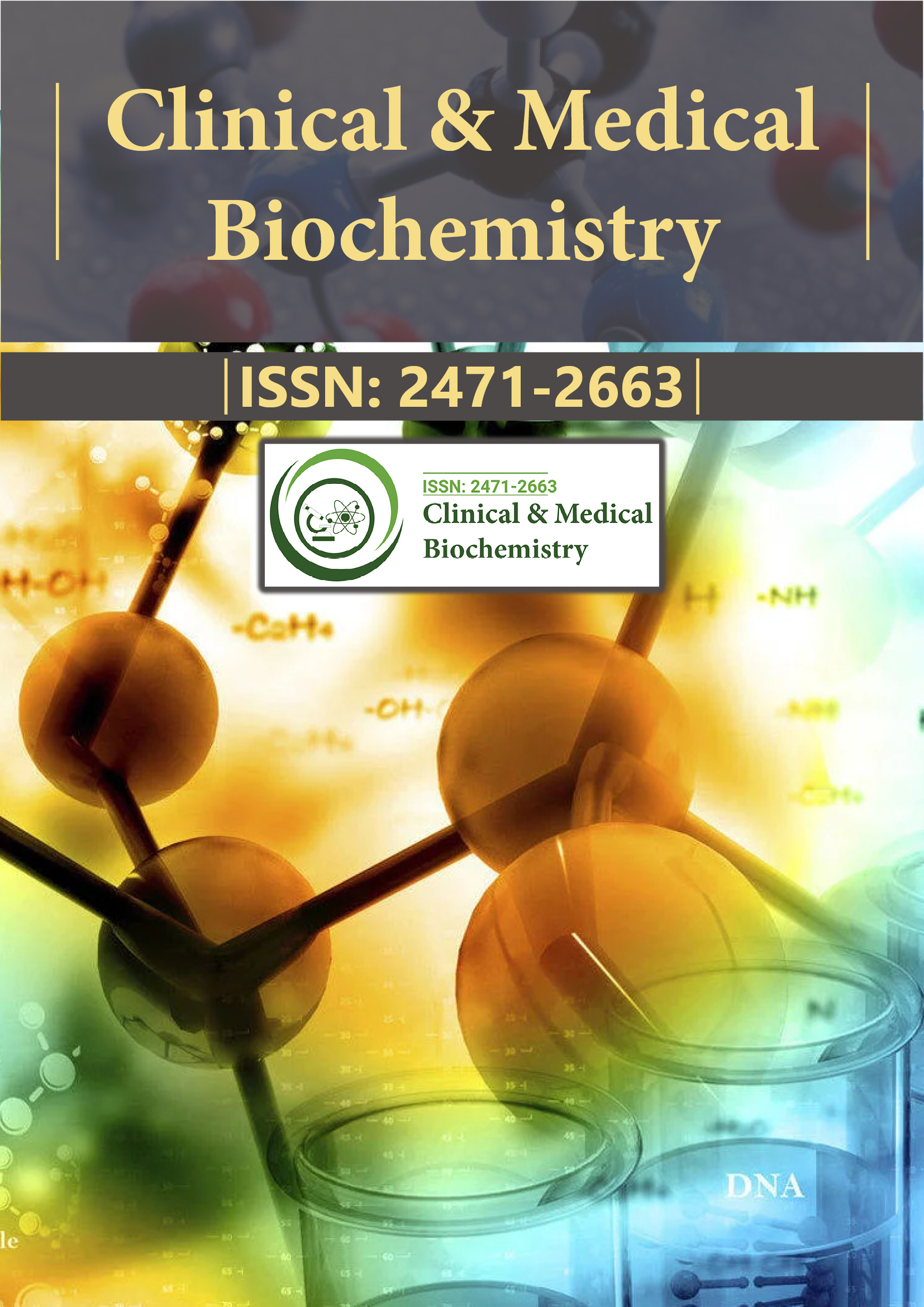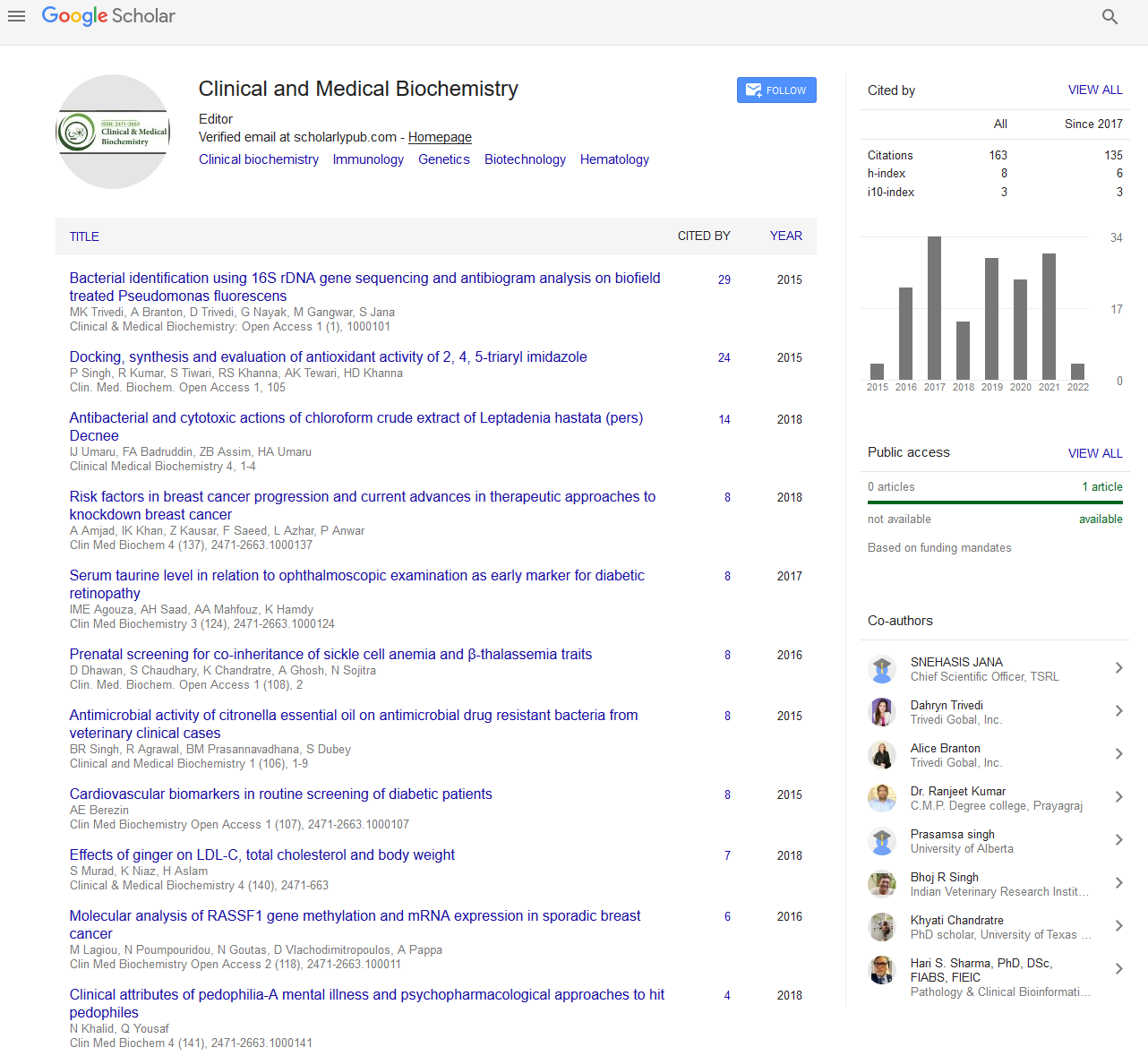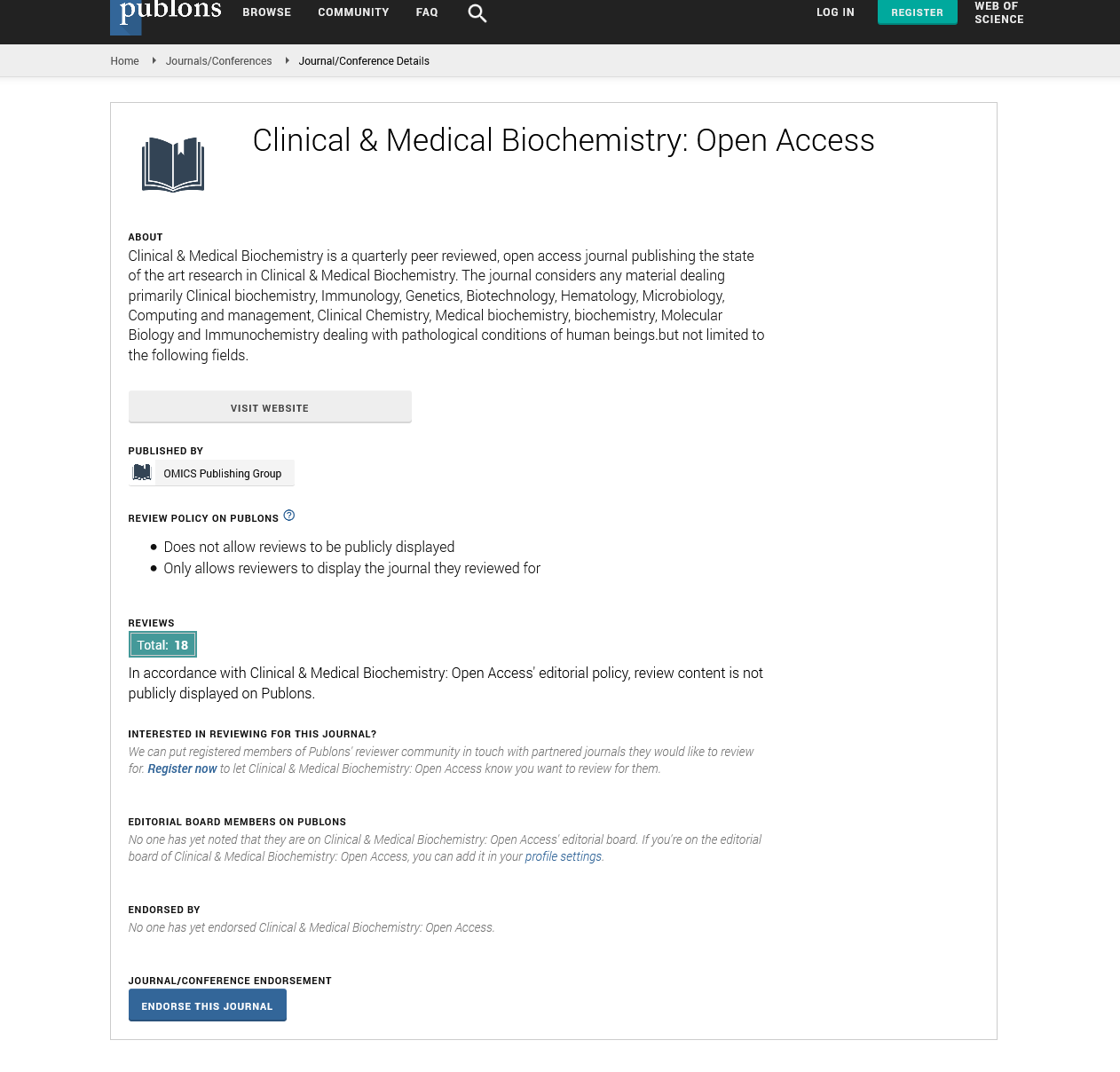Indexed In
- RefSeek
- Directory of Research Journal Indexing (DRJI)
- Hamdard University
- EBSCO A-Z
- OCLC- WorldCat
- Scholarsteer
- Publons
- Euro Pub
- Google Scholar
Useful Links
Share This Page
Journal Flyer

Open Access Journals
- Agri and Aquaculture
- Biochemistry
- Bioinformatics & Systems Biology
- Business & Management
- Chemistry
- Clinical Sciences
- Engineering
- Food & Nutrition
- General Science
- Genetics & Molecular Biology
- Immunology & Microbiology
- Medical Sciences
- Neuroscience & Psychology
- Nursing & Health Care
- Pharmaceutical Sciences
Abstract
Low Serum Cholesterol Concentration in Adult Patients with Phenylketonuria- One Centre Experience
Karolina M Stepien and Chris J Hendriksz
Introduction: Phenyloketonuria is a rare metabolic disorder caused by a deficiency of the phenylalanine (Phe) hydroxylase enzyme. A reduced intake of natural proteins helps optimise plasma Phe concentration. A relationship between high plasma Phe level and the inhibition of cholesterol synthesis was previously observed but the mechanisms are unclear. Low LDL-cholesterol concentrations were observed in children and adolescent PKU patients, but not in adults. This is the first paper to present lipid profile in adult patients with this condition. Methods: Lipid profile was analysed in adult patients with PKU. We examined associations between Phe and four outcomes: total cholesterol, LDL-cholesterol, HDL-cholesterol and triglycerides. Confounding factors (predictors) were taken into account: body mass index (BMI), age and gender. The statistical analysis was performed using multiple linear regression. Results: Among 176 adult patients 91 were females (52%). The mean age was 32 � 10.7 years. 82 patients (46%) were on strict PKU diet. Mean Phe was 1017 � 440 ?mol/L. Mean total cholesterol was 4.33 � 0.94 mmol/L, LDL-cholesterol 2.48 � 0.8 mmol/L, HDL-cholesterol 1.2 � 0.34 mmol/L, triglycerides 1.6 � 0.9 mmol/L. There was no correlation between Phe concentration and lipid profile in our cohort of adult patients with PKU. No cardiovascular events were documented in our cohort. Conclusions: In conclusion, the outcomes of the study demonstrate that mean total cholesterol, LDL-cholesterol and triglycerides concentrations were substantially lower as compared to healthy population, which may confer their reduced cardiovascular risk. Lipid profile remained low irrespectively of Phe concentration.


